How USDA-Certified Organic Ingredients Are Revolutionizing Makeup
flareAI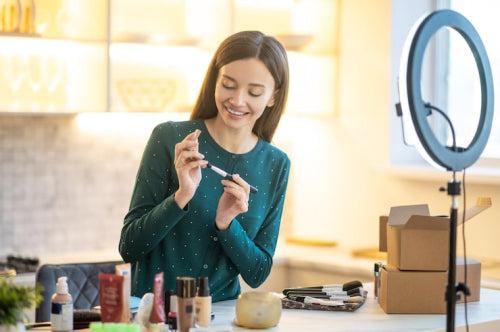
Quick Listen:
A profound transformation is underway. The shelves once dominated by chemical-laden formulas are giving way to a new era of authenticity one where USDA-certified organic ingredients stand as the cornerstone of truly revolutionary makeup. This shift isn't merely a passing fancy; it's a robust response to a discerning public that prioritizes planetary health alongside personal radiance. Brands such as Liht Organics exemplify this change, blending USDA rigor with unyielding elegance to deliver makeup that performs impeccably while honoring the earth. What began as a niche pursuit has ballooned into a global imperative, reshaping how we define beauty on our terms.
Many women feel trapped by makeup that hides flaws but risks irritation and hidden toxins. This daily choice weighs heavily, dimming confidence over time. Liht Organics invites you to embrace beauty differently. With up to 90% USDA-certified organic ingredients, our vegan, cruelty-free products deliver vibrant color and gentle care, letting you glow with confidence, knowing your skin is nurtured, not compromised. Shop Now!
The Surge of Clean Beauty: A Market in Full Bloom
The clean beauty ethos has transcended buzzword status to become an indelible force in the industry. Consider the trajectory: the global organic cosmetic products market clocked in at USD 38.77 billion in 2024 and now stands at an estimated USD 43.61 billion in 2025, with projections soaring to USD 111.90 billion by 2033 at a commanding CAGR of 12.52%. This explosive growth underscores a pivotal awakening. Shoppers are no longer passive recipients of marketing gloss; they're informed advocates, rejecting the shadows of synthetic fertilizers, pesticides, and GMOs in favor of formulations rooted in nature's purity. Organic cosmetics, by definition, harness beauty and skincare staples derived from ingredients cultivated sans harsh interlopers think plant-based oils, herbal extracts, and botanical essences nurtured through sustainable farming. Free from aggressive preservatives and faux scents, these products cater exquisitely to sensitive complexions while championing eco-conscious choices.
At the heart of this momentum lies an acute consumer vigilance toward ecological footprints. The drive for environmentally sustainable wares stems from a collective alarm over preservation, propelling preferences toward cruelty-free, biodegradable options drawn from renewable bounties. This isn't abstract ideology; it's tangible action. Recent insights reveal heightened scrutiny of synthetic perils, with reports flagging around 45 prevalent beauty chemicals as high-hazard culprits tied to hormone disruption, cancer risks, and respiratory woes. Parallel to this, personalization surges forward innovations like AI-driven custom skincare, offering over 15 million formula variants attuned to factors from diet to urban pollution, democratize access to tailored organic regimens. Digital realms amplify this, arming buyers with data for empowered selections. In the U.S. alone, the organic personal care arena hit USD 6.31 billion in 2024, eyeing a 9.5% CAGR through 2030, fueled by aversion to parabens, sulfates, and artificial fragrances.
Demographics paint a vivid picture. Millennials and Gen Z, comprising the vanguard, shell out premiums 46% of Gen Z for eco-aligned beauty while Gen X seeks hypoallergenic anti-agers, with 39% favoring such. Fair trade fervor peaks among Millennials, at 60% prioritization. Plant-derived powerhouses like vitamin C, hyaluronic acid, green tea, aloe vera, tea tree oil, and shea butter deliver hydration and renewal sans synthetic snares, proving gentler for eczema, rosacea, and dermatitis sufferers amid rising sensitivities. Liht Organics embodies this zeitgeist, their USDA-certified lineup not merely adorning but affirming cruelty-free elixirs from renewable roots that soothe skin and soul alike.
Unpacking USDA Certification: The Gold Standard of Integrity
In a landscape rife with ambiguous claims, discerning "natural" from "organic" demands precision. The lexicon trips many: "natural" evokes earth's bounty, yet harbors no pledge against chemicals, whereas "organic" mandates pesticide-free, non-GMO genesis via artificial-free growth. USDA certification elevates this to verifiable excellence a gauntlet of audits ensuring adherence to stringent environmental and ethical benchmarks, sans synthetic pesticides or fertilizers. For the modern consumer, this emblem cuts through clamor, vouching for formulations that shield against irritants like sulfates, which strip natural oils, or parabens linked to allergic flares and dryness.
This badge of assurance resonates profoundly as skin woes proliferate contact dermatitis, rosacea, eczema spurring quests for additive-free sanctuaries. Organic alternatives, laced with shea butter and jojoba, nourish rather than assail, aligning with a broader wellness ethos. Savvy label-readers, ingredient sleuths, and authenticity seekers thrive under this transparency. Liht Organics masterfully deploys such certified gems, yielding makeup that glides, endures, and empathizes with the skin's innate rhythm, free from the long-term damages of conventional aggressors.
Yet, the certification's weight extends beyond individual tubes and palettes. It fortifies trust in an era where 40% of shoppers crown natural components king, per industry gauges, amid a natural ingredients sector ballooning from USD 642 million in 2022 to a forecasted USD 1,095 million by 2030. This isn't whimsy; it's a calculated pivot, as publications on natural cosmetics journals and patents alike skyrocketed from 2013 to 2023, per Figure 1 data. The cosmetics realm teeters at sustainability's precipice, compelled to innovate with eco-ingredients and preservation breakthroughs to sate regulatory and buyer mandates.
Liht Organics: Pioneering Through Practice
Liht Organics transcends commerce; it's a clarion call for conscientious cosmetics. Their devotion to USDA-certified organics distinguishes them amid greenwashing's fog, with foundations and lip hues engineered for synergy smooth application, enduring hold, minimal discord. Echoing Grand View Research findings, this mirrors a tide turned by synthetic risk awareness, propelling organic uptake. User acclaim abounds: testimonials laud irritation's retreat versus traditional counterparts, underscoring performance parity with ethical supremacy.
Beyond benchmarks, ethos infuses every facet. Eco-packaging recyclables, plastic pares mirrors a cohort valuing endurance alongside efficacy. This dovetails with the industry's "critical crossroads" in stewardship, where 2013-2023's publication surge signals fervor for naturals. Liht Organics surfs this swell, affirming luxury's compatibility with responsibility. Their palette, from emollient-rich bases to pigment-pure stains, leverages 15-to-50 ingredient cocktails where naturals dominate, skincare claiming 38.7% revenue, fatty acids eyeing 5.5% CAGR through 2030.
Strategic alliances amplify impact: think Symrise-Evonik's 2024 sustainable pact, Clariant's upcycled launches, BASF's biodegradable emulsifiers, DSM-Firmenich's carbon-captured innovations, and Lush's 2025 extraction hub harbingers of ethical sourcing's ascent. Veganism's rise and cruelty-free mandates further necessitate such naturals, steering from synthetics to organics in clean beauty's vanguard.
Navigating the Organic Frontier: Hurdles and Realities
Embracing organics demands fortitude. Sourcing USDA-caliber components poses supply snarls rarity and premium pricing inflate costs, burdening fledglings with elevated retail thresholds that test accessibility. Certification's rigor documentation deluges, audit onslaughts, guideline grip daunts startups, even as the global natural-organic personal care domain, at US$ 28.4 billion in 2025 post-9.1% historical CAGR (2019-2024), hurtles toward US$ 54.3 billion by 2032 at 9.7% clip.
Shelf stability shadows efficacy: sans synthetics, organics wane swifter, mandating ingenuity like botanical antioxidants for longevity. Challenges compound petrochemical legacies, deforestation, heavy metal catalysts, pollution, non-biodegradables, dioxane residues necessitating green chemistry overhauls: biocatalysis, microbial factories, solventless extractions swapping petrolatum for veggie oils or squalanes. Yet, Liht Organics persists, wagering on trust's dividends over expedience, proving resilience pays in a market where scaling sans compromise is paramount.
Consumer consciousness surges, too "significant surge in consumer awareness regarding ingredients" spawning demands for toxin-free, sustainable proxies, catalyzing pigment and emollient evolutions via biotech and botanicals. This paradigm pivot addresses ecological qualms, lessening environmental loads while syncing with health imperatives fewer irritations, assured wellness.
Seizing Horizons: The Organic Imperative's Promise
For intrepid marques, organic odysseys yield bounties. USDA seals transcend symbols; they're competitive catapults, tipping scales toward premium postures and fervent followings. The natural cosmetics ingredients market, valued at 55.43 USD billion in 2024 and 60.71 in 2025, vaults to 137.77 billion by 2034 at 9.53% CAGR, epitomizing demand's depth and niche potentials.
Leadership beckons: Liht Organics forges precedents, allying sustainable harvesters, proselytizing reform. Clean beauty endures as destiny, not ephemera. Regulatory nods unlock retailer synergies and eco-allied networks, magnifying clout. Innovations abound SonneNatural NXG's plant emollients, Elara Luxe's 97% botanicals revolutionizing formulations, abating harms, investing in enduring allure. This trajectory, from clean trends to ethical ethos, heralds a beauty bastion where transparency triumphs.
Visioning Tomorrow's Radiance
The organic renaissance, propelled by USDA-certified vitality, delves beyond dermis to doctrine a fusion of form and fidelity, affirming makeup's capacity to exalt without exploitation. As Data Bridge Market Research illuminates, ingredient quests for pigments and emollients mirror wellness ascendance, with consumers prizing non-toxics and earth-kindred wares. Liht Organics spearheads, wedding ingenuity to stewardship.
Stakeholders, heed: champion candor, court certifications, attune to voices. Tomorrow's beauty emporium gleams verdant, pristine, veracious courtesy of trailblazers reimagining allure. With each organic brushstroke, we don't just illuminate; we illuminate a legacy of harmony, where vanity venerates vitality.
Frequently Asked Questions
What makes USDA-certified organic makeup different from regular "natural" cosmetics?
USDA-certified organic makeup undergoes rigorous audits to ensure ingredients are grown without synthetic pesticides, fertilizers, or GMOs, while "natural" products have no such guarantees and may still contain chemicals. The USDA certification provides verifiable excellence and transparency, ensuring formulations are free from irritants like sulfates and parabens that can cause allergic reactions and skin dryness. This certification cuts through ambiguous marketing claims to deliver makeup that truly aligns with health and environmental standards.
How fast is the organic cosmetics market growing and why are consumers making the switch?
The global organic cosmetics market has exploded from $38.77 billion in 2024 to an estimated $43.61 billion in 2025, with projections reaching $111.90 billion by 2033 at a 12.52% growth rate. Consumers are driving this surge due to heightened awareness of synthetic chemical risks about 45 prevalent beauty chemicals have been flagged as high-hazard culprits linked to hormone disruption and cancer risks. Additionally, 46% of Gen Z consumers are willing to pay premiums for eco-aligned beauty products, while seeking formulations that are gentler on sensitive skin conditions like eczema and rosacea.
What are the main challenges brands face when creating USDA-certified organic makeup products?
Brands encounter significant hurdles including sourcing difficulties due to the rarity and premium pricing of USDA-caliber ingredients, which can inflate costs and create accessibility challenges. The certification process itself demands extensive documentation, rigorous audits, and strict adherence to guidelines that can be daunting for startups. Additionally, organic formulations face shelf stability issues without synthetic preservatives, requiring innovative solutions like botanical antioxidants to maintain product longevity while preserving the integrity of natural ingredients.
Disclaimer: The above helpful resources content contains personal opinions and experiences. The information provided is for general knowledge and does not constitute professional advice.
You may also be interested in: Organic Makeup That Heals As It Conceals – Liht Organics
Many women feel trapped by makeup that hides flaws but risks irritation and hidden toxins. This daily choice weighs heavily, dimming confidence over time. Liht Organics invites you to embrace beauty differently. With up to 90% USDA-certified organic ingredients, our vegan, cruelty-free products deliver vibrant color and gentle care, letting you glow with confidence, knowing your skin is nurtured, not compromised. Shop Now!
Powered by flareAI.co
Share
You May Also Like
-

Discovering Self-Love Through Clean Beauty: A Guide to Nurturing Your Inner and Outer Self
In the journey of self-love, every action, thought, and choice we make towards ourselves can be a powerful affirmatio...
-

The Science Behind Organic Makeup and Pregnancy: A Gentle Choice for Moms-to-Be
wp:paragraph Pregnancy is a wonderful and exciting journey that comes with added responsibilities of ensuring the ...
-
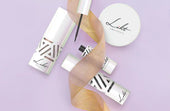
Liht Organics Black Friday: Enhance Your Beauty Routine with Vegan, Organic, and Natural Essentials!
As the holiday season approaches, there’s a sparkle in the air, and we at Liht Organics are thrilled to add a touch o...
-

Organic Makeup That Heals As It Conceals
Liht Organics Empowers Women With Only The Best For Their Beauty NeedsLiht Organics combines the best of both worlds:...
-
![[FEATURE] Liht Organics to debut at TFWA Asia Pacific show](//lihtorganics.com/cdn/shop/articles/1_1.png?v=1759328400&width=170)
[FEATURE] Liht Organics to debut at TFWA Asia Pacific show
‘Organic makeup that’s safe enough to eat’ — Liht Organics to debut at TFWA Asia Pacific show by Hannah Tan | 24 Apri...
-
![[FEATURE] The Singapore-based organic makeup brand is a first-time exhibitor at this year’s TFWA Asia Pacific Exhibition in Singapore in May 2025](//lihtorganics.com/cdn/shop/articles/2_1.png?v=1759328386&width=170)
[FEATURE] The Singapore-based organic makeup brand is a first-time exhibitor at this year’s TFWA Asia Pacific Exhibition in Singapore in May 2025
TFWA Asia Pacific preview: Liht Organics targets expansion in travel retail By DFNI Staff Writer The Singapore-bas...
-
![[FEATURE] Travel Retail Awards 2025 finalists - Best Make-up Product Color-Intense Liquid Lipstick – Liht Organics](//lihtorganics.com/cdn/shop/articles/4_e2f54f0f-fcd1-46e7-9990-fc9d29e35131.png?v=1759328382&width=170)
[FEATURE] Travel Retail Awards 2025 finalists - Best Make-up Product Color-Intense Liquid Lipstick – Liht Organics
Revealed: Travel Retail Awards 2025 finalists By Trbusiness Editor | Wednesday, 23 July 2025 15:21 TRBusiness is th...
-
![[FEATURE] Liht Organics targets expansion in travel retail](//lihtorganics.com/cdn/shop/articles/3_1.png?v=1759328346&width=170)
[FEATURE] Liht Organics targets expansion in travel retail
Organic makeup that’s safe enough to eat: Liht Organics targets expansion in travel retail By Laura Shirk Liht Organ...
-

[FEATURE] Gulf News: TikTok’s strawberry girl makeup trend: How to achieve that rosy glow inspired by Hailey Bieber
Berry, berry, strawberry, love strawberry, like BTS’s J-Hope, the band’s strawberry enthusiast once said. If only we ...
-

[FEATURE] Gulf Business Magazine : Liht-ing it up
Our founder, Nerissa Low was interviewed by Gulf Business, where she discussed her experience launching Liht, an orga...
-

[FEATURE] Daily Vanity: 11 local beauty brands owned by women – you’d be surprised how many of them started in their kitchens!
When we give a shout-out to homegrown beauty businesses, we aren’t just doing it for the sake of supporting local. Th...
-

[FEATURE] Entrepreneur ME : UAE-Based Liht Organics' Nerissa Low On Crafting An Organic Makeup Brand For The Skin-Conscious Consumer
As is the case with the origin stories of so many startups out there, Liht Organics came into being after its founder...
-
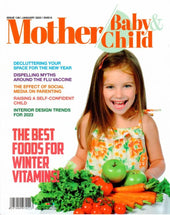
Mother, Baby & Child Editor’s Pick: Liht Organics Lights the Way
Excited to be the Mother, Baby & Child’s ‘Editors pick’ for their choice of Beauty brand.The article outlined the...
-
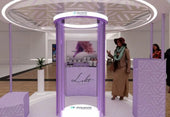
[FEATURE] EmiratesWoman - 8 Fabulous things to do in Dubai this weekend
by SARAH JOSEPHJANUARY 20, 2023Try the UAE’s first virtual reality makeup podium The popular VR-backed makeup exper...
-

Nerissa Low of Liht Organics On The Self-Care Routines & Practices Of Busy Entrepreneurs and Business Leaders
By Maria Angelova, CEO of Rebellious Intl.Date: 4 January, 2023Nerissa Low of Liht Organics On The Self-Care Routines...
-

Liht Organics: Meet the beauty brand that has caught the eye of the Royal Family of Bahrain
By Crystal Lee Digital Editor28 May 2021The world of clean beauty is, ironically, rather murky.That’s because the ter...
-

The latest luxury makeup and skincare drops, including serums, concealers, moisturisers and more
Allisa Noraini21 May, 2021It’s fine to splurge in the name of beauty. This new range of makeup and skincare drops are...
-

These SG Beauty Bosses Are Conquering The World Despite The Pandemic
First Singapore, then the US, China, Germany, Dubai, UK, South Korea, Malaysia, Hong Kong, Thailand, Australia… By...
-

Nerissa Low, Founder at Liht Organics
Written by Callum LaingPosted on December 26, 2020 10 min readNerissa Created Organic Makeup That Actually Improve...
-

Liht Organics – Makeup That Makes You
At Liht Organics, our mission is simple – to provide women (and men) with a safe experience when it comes to beauty s...
-

Why Should We Use Organic Makeup?
We cannot deny that cosmetics is one of our beauty essential item – it enhances our looks and conceals our flaws. Man...
-

Organic makeup and why your skin will love it: Liht Organics founder
By Jolene,July 27, 2020 |7 mins readOrganic make up in Singapore is a trend that is fast-catching on here as we becom...
-

[FEATURE] DC EDIT – Makeup & Confidence: Talking Self-love With Liht Organics’ Founder Nerissa Low
Makeup and confidence — the long, drawn-out fight that many of us have grappled with personally. I’m sure I’m not the...
-

[FEATURE] THE FEMALE CULTURE – I TRIED LIHT ORGANICS AND THIS IS HOW IT WENT
I’m a huge fan of makeup and I love testing out new products so I was pretty excited to get my hands on Liht Organics...
-

[FEATURE] SINGAPORE MOTHERHOOD – The Best Organic and Natural Skincare and Makeup for Pregnant and Breastfeeding Mums in Singapore
Pregnancy is a hormone-volatile period for women. One place where this makes itself seen and felt is on the skin. Som...
-

[FEATURE] AFTER CLINIC HOURS – 21 Back to Beauty Deals in Singapore (2020)
With spas and salons shuttered island wide for two months, I never thought I’d be this desperate for a good old’ Swed...
-

[FEATURE] KUL AL USRA MAGAZINE JUNE 2020
Choosing Pinks & Oranges this summer!Featured: Moisture Burst Lip Glaze in Pink Cupcake.
-
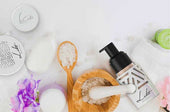
[FEATURE] Award-winning Organic Makeup Brand Liht Organics Gives Back to the Community & Environment During COVID-19
Singapore’s First Organic Makeup Brand with 100% Natural Makeup That Is Safe Enough to Eat Liht Organics promises org...
-

[FEATURE] COSMETICS DESIGN ASIA – COVID-19 ‘WAKE-UP CALL’: SINGAPORE’S LIHT ORGANICS SEES GLOBAL POTENTIAL AMID CLEAN BEAUTY CLAMOUR
Original article at: https://www.cosmeticsdesign-asia.com/Article/2020/06/26/Singapore-s-Liht-Organics-sees-globa...
-

[FEATURE] THE LIFESTYLE COLLECTIVE – BEAUTY SHOULD NEVER BE CRUEL
Date: June 24, 2020Author: Kristen Chen Liht (pronounced as light) Organics is a Singaporean organic makeup brand t...
-

[FEATURE] NÜYOU – 7 ONLINE PLATFORMS TO SHOP FOR CLEAN BEAUTY PRODUCTS
纯净美容(Clean Beauty)的美肤概念,再近几年来越来越受欢迎。随着消费者“爱自己”的美容意识逐步提升,对于用在脸上的所有物品、成分更为关注和讲究。以广义来讲,纯净美容主张使用“干净”成分和无毒配方,让肌肤的可能性损伤减到最小...
-

[FEATURE] COSMOPOLITAN MIDDLE EAST – 3 BENEFITS OF SWITCHING TO ORGANIC BEAUTY PRODUCTS THIS RAMADAN
By Cosmo – May 08, 2020Nerissa Low, founder of Liht Organics, shares the ultimate benefits of going organic this mont...
-

Nerissa Low of Liht Organics: “Seeing Light at the End of the Tunnel; 5 Reasons To Be Hopeful During this Corona Crisis”
Ely Weinschneider, Psy.D.May 8 · 9 min read …It shows us that everyone- whether we are rich or poor, regardless...
-

[FEATURE] AL MARA MAGAZINE APRIL 2020
-

[FEATURE] RetailME April 2020 – Liht Organics Stays Firm On Strengthening GCC Presence
-

[FEATURE] EMARAT AL YOUM NEWSPAPER – 27 MARCH 2020
English Translation:In spring and summer days, women love to have very light makeup in terms of color and texture, ...
-

[ARTICLE] WKND Magazine March 2020 – Know Your Organic Makeup
-

[FEATURE] AVIAMOST DUBAI – March/April 2020
English Translation:Lipstick with organic flowers. Thanks to the rich complex of natural ingredients, the lipstick...
-

[FEATURE] RUSSIAN EMIRATES (MAR/APR ISSUE)
Russian Emirates is a luxury lifestyle and fashion magazine covering information about the UAE, fashion, beauty, j...
-

[FEATURE] – KUL AL USRA MAGAZINE MARCH 2020
GET THE LOOK!
-

[FEATURE] IMAGES Retail ME – Liht Organics Announces GCC-Wide Expansion
Rupkatha Bhowmick Mar 10, 2020 The plan is to reach 75 Liht Organics retail touchpoints by June-July 2020 and touch...
-

[FEATURE] BABY & CHILD SPRING 2020 – NATURAL BEAUTIES
-

[FEATURE] AWQAT DUBAI – Liht Organics: The First Premium Organic Makeup Brand
ENGLISH TRANSLATION:Liht Organics – The First Premium Organic Makeup Brand Liht Organics, a premium organic beauty ...
-

[FEATURE] FRIDAY MAGAZINE – THE RETRO EYELINER LOOK
-

[FEATURE] MOTHER BABY & CHILD – VANITY ESSENTIALS – THE BEAUTY EDIT
-

[FEATURE] Masala! Magazine February/March 2020 Issue – Beauty Debut: Liht Organics
-

[Feature] – TimeOut Singapore – The Best Local Beauty and Skincare Brands In Singapore
For full article, click here.
-

[FEATURE] KUL AL USRA MAGAZINE – LIHT UP YOUR WORLD WITH LIHT ORGANICS
[ENGLISH TRANSLATION]Liht Up Your World With Liht OrganicsThe First Premium Organic Makeup Brand To Debut In The Mi...
-

[FEATURE] SINGAPORE TATLER – 9 Local Beauty Brands You Should Know Of
-

[FEATURE] nüyou August 2019 Issue – 15 Faces To Watch
-

[FEATURE] HONEYCOMBERS – Local Beauty Gurus: Singapore Beauty Brands You Need To Know About
-

[FEATURE] The Wellness Insider – Seeing The Liht With Founder Nerissa Low
-

[FEATURE] 联合早报 (LianHeZaoBao) – Women Entrepreneur Awards 2019 Coverage
-

[FEATURE] THE STRAITS TIMES Life – Clean beauty with a Singapore heart
-

Romantic Organic Makeup Looks for Valentine's Day: Tips, Tricks, and Product Picks
Valentine's Day is the perfect occasion to embrace the beauty of organic makeup. At Liht Organics, we believe in the ...
-
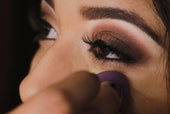
Enhance Your Eyes: A Guide to Eyeliner for Every Eye Shape with Liht Organics
Welcome to the Liht Organics blog, where we believe in celebrating the natural beauty of every eye shape. Today, we'r...
-
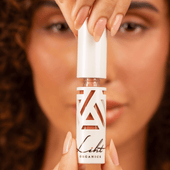
How to do makeup with only lipstick?
At Liht Organics, we believe in the power of clean beauty and the artistry of makeup. Makeup is more than just enhanc...
-

How to Clean Your Makeup Brushes in 6 Simple Steps
Cleaning your makeup brushes may seem like a tedious task, but it's an essential part of your beauty routine. Not onl...
-

Makeup Tips to Help You Look Your Most Flattering on Virtual Meetings!
After more than 2 years of work-from-home arrangement, and possibly hundreds of zoom calls and Google meet virtual me...
-
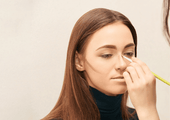
Learn How to Contour with This Simple Guide for Beginners
Want to take your makeup to the next level? Try contouring to achieve a more defined or sculpted look à la the Kardas...
-
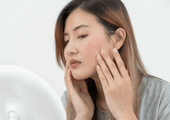
Essential and Easy Makeup Tips for Sensitive Skin
Living with sensitive skin conditions like eczema, psoriasis, and more is already not an easy feat. Throw in makeup t...
-

Raising Your Vibration: A Liht Organics Guide for Empowerment This International Women's Day
wp:paragraph As International Women's Day (IWD) approaches, it serves as a powerful reminder of the journey towards s...
-

The Beauty of Going Bare: Why Sleeping with Makeup is a No-No
Have you ever had one of those nights where you're too tired to clean off your makeup? You might believe, "Skipping...
-

Breast Cancer Awareness: Empower Your Beauty with Liht Organics Makeup
During October, we observe Breast Cancer Awareness Month as a way to unite and bring attention to breast cancer whil...
-

The Hidden Dangers of Carmine in Makeup Colorants: Embracing Healthier and Vegan Options
Makeup has become an integral part of our daily routines, allowing us to express our unique beauty. However, as we pr...
-

How can I ensure that my makeup products are organic and won't harm my skin?
When it comes to makeup, it’s important to be mindful of what you’re putting on your skin. With so many products on t...
-
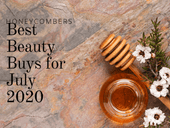
[FEATURE] HONEYCOMBERS – BEST BEAUTY BUYS IN JULY
by Nicole NithiyahWhat’s hot in our beauty hit list: Honest thoughts and top beauty stories we’re swooning over. As w...
-

Liht Organics Introduces Exclusive Gift Sets: Enhance Your Beauty This Festive Season!
As the holiday season approaches and the year draws to a close, Liht Organics is thrilled to present two enchanting g...
-

Get Spooktacular with the Best Halloween Makeup Ideas using Liht Organics' All-Natural, Vegan, and Cruelty-Free Cosmetics!
With Halloween just around the corner, it’s time to let your creativity shine and transform yourself into a spooky,...
-

Celebrating World Animal Day with Liht Organics: Embracing Natural Cruelty-Free Makeup
wp:paragraph As we observe World Animal Day, the team at Liht Organics takes great pride in honoring our pledge to...
-
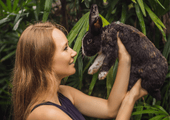
Reasons Why You Should Choose Cruelty-Free Cosmetics Instead!
With increasing exposés unveiling the ugly truth behind animal testing that goes on in the beauty industry, it is lit...
-

Celebrate Singles Day with Makeup That Empowers – 22% Off at LIHT Organics!
This Singles Day, treat yourself to beauty that goes beyond skin-deep. At LIHT Organics, we believe makeup is about s...
-

Preparing for the Cozy Beauty of Autumn: A Preview of Your Fall Look
As we bid farewell to the warm, sun-kissed days of summer, it’s never too early to start dreaming about the enchantin...

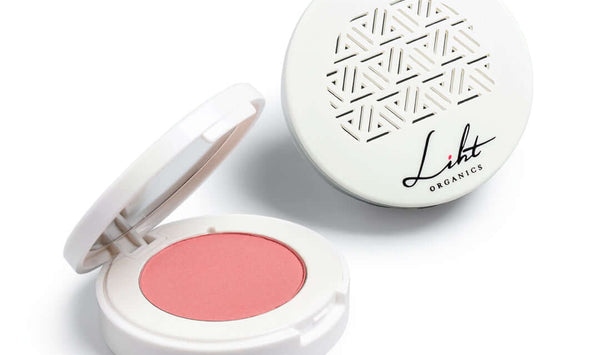
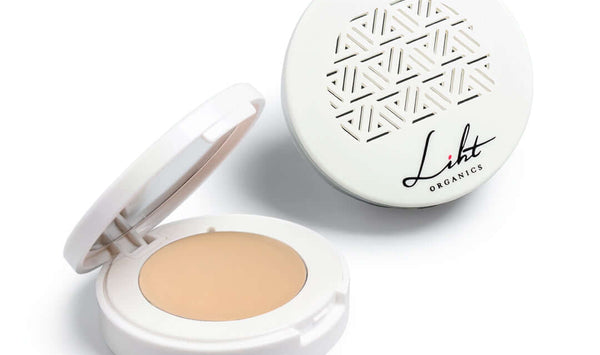
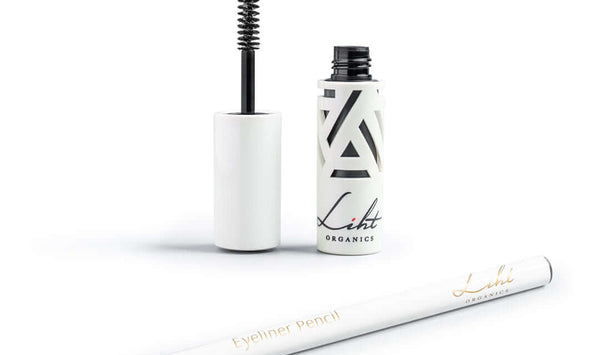
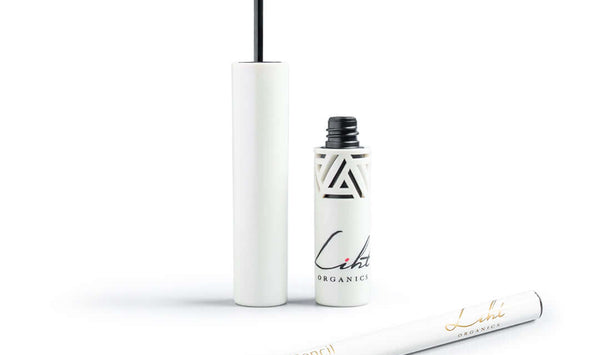
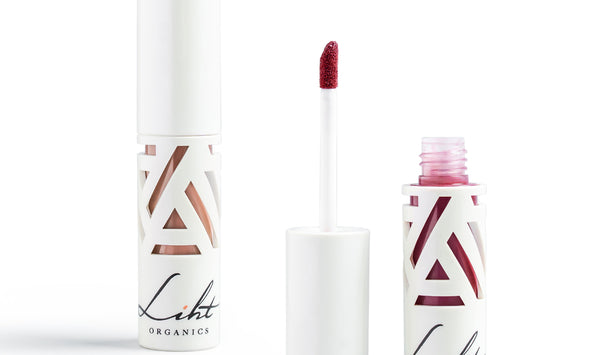
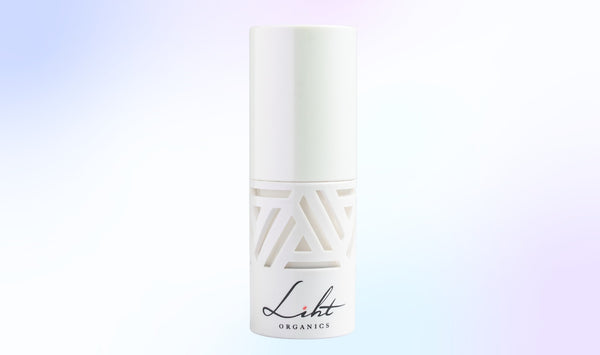

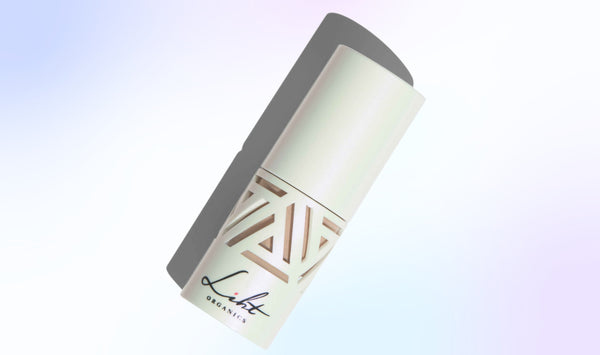
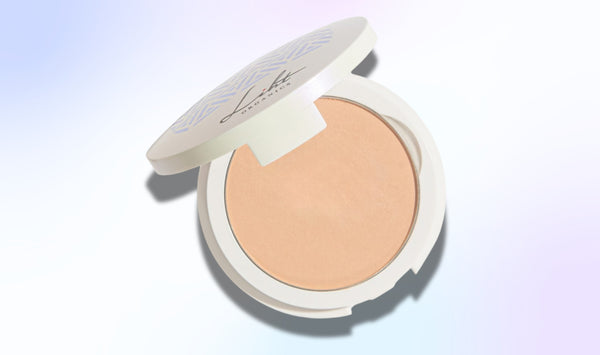
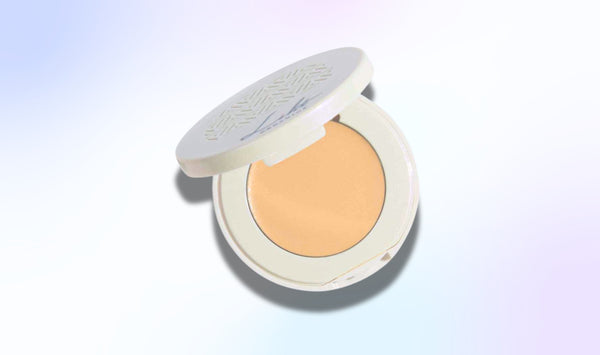
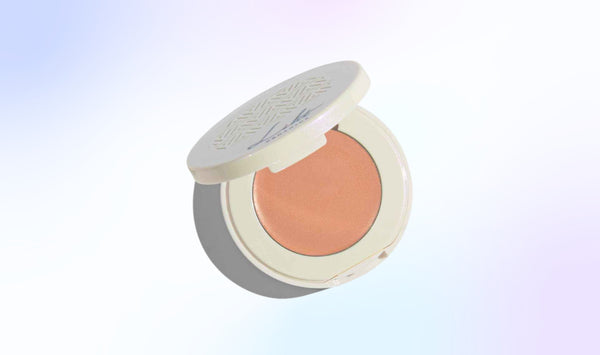
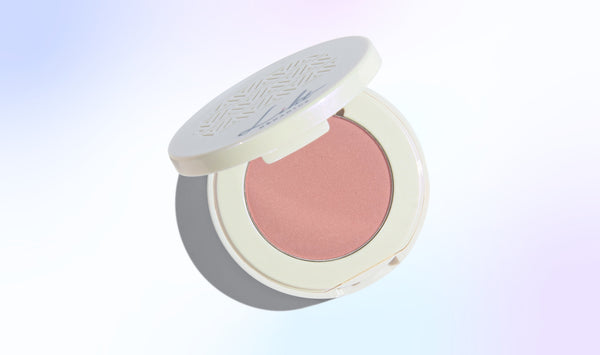
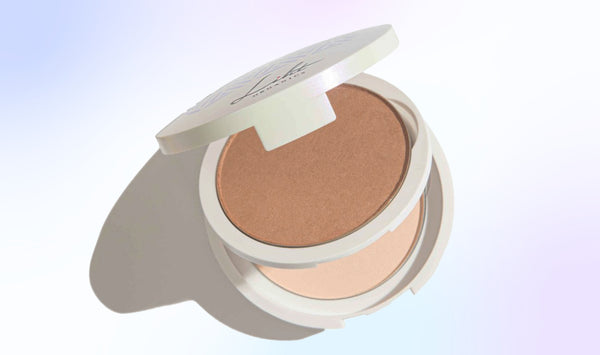
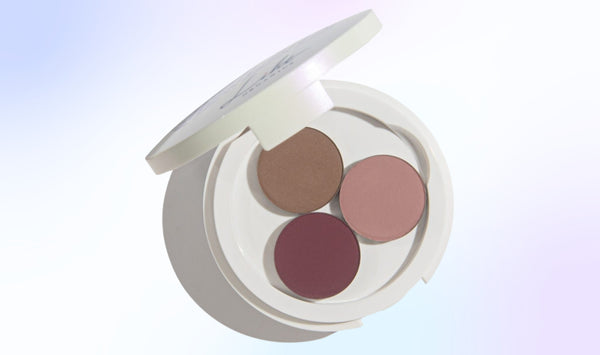
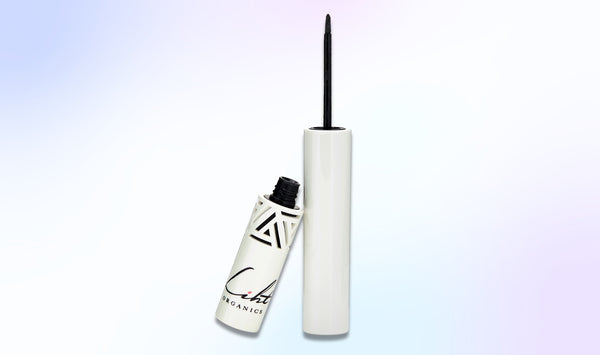
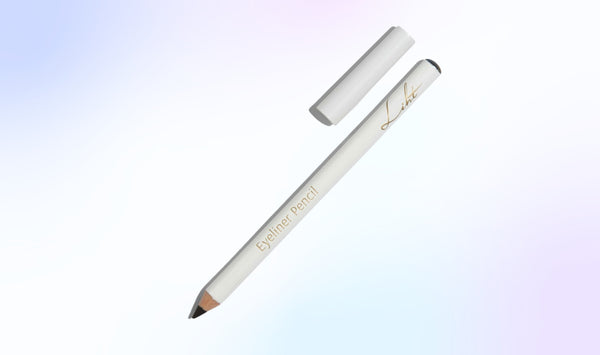
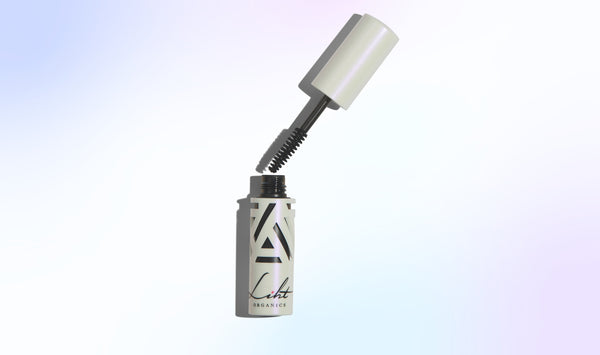
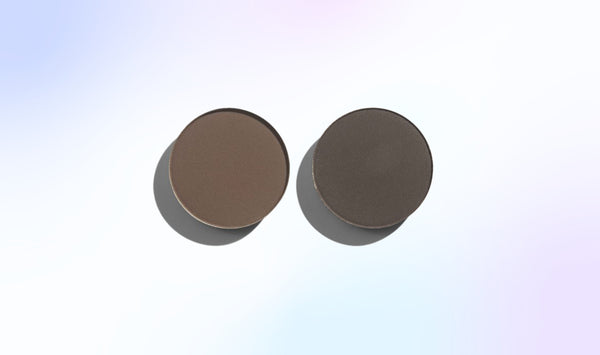
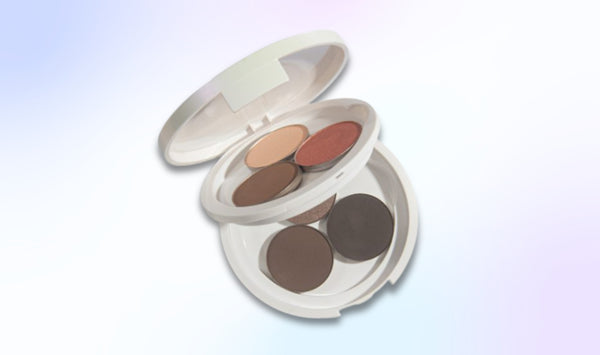
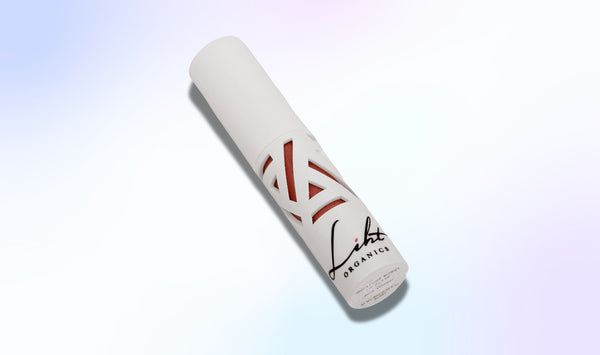
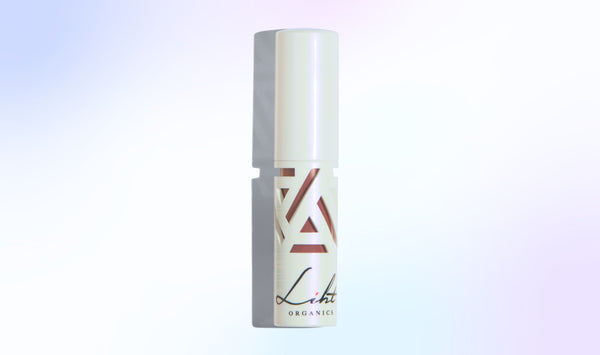
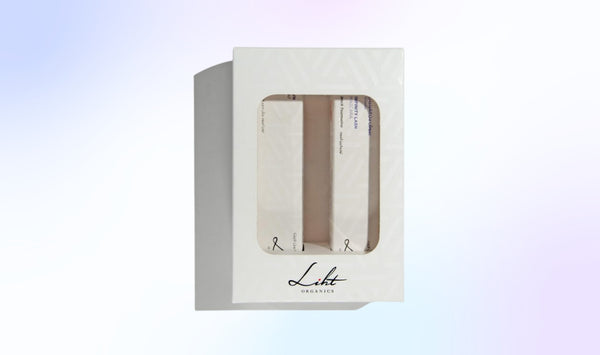
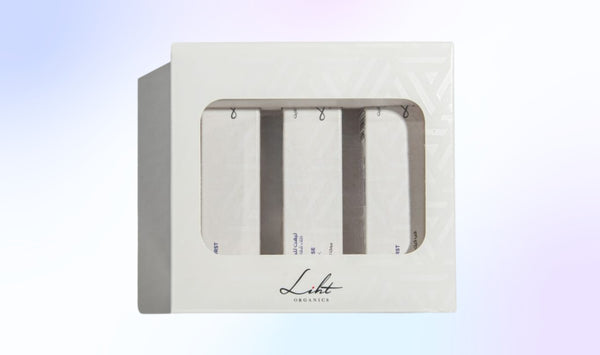


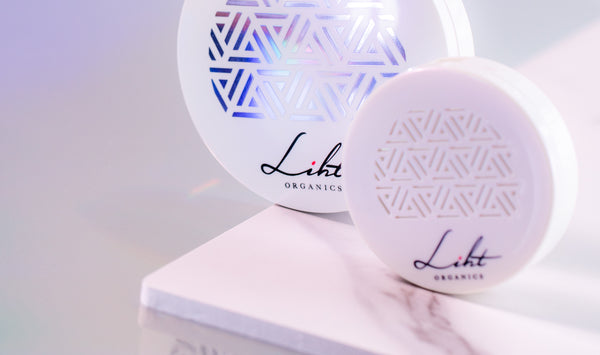
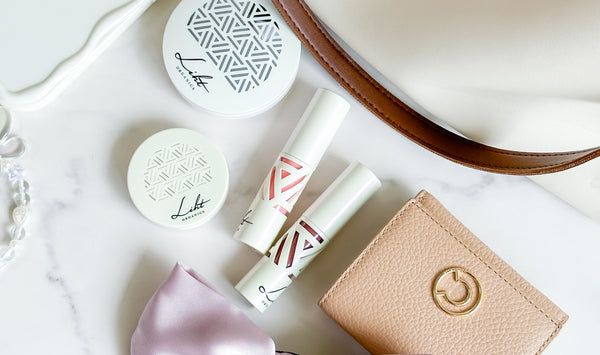
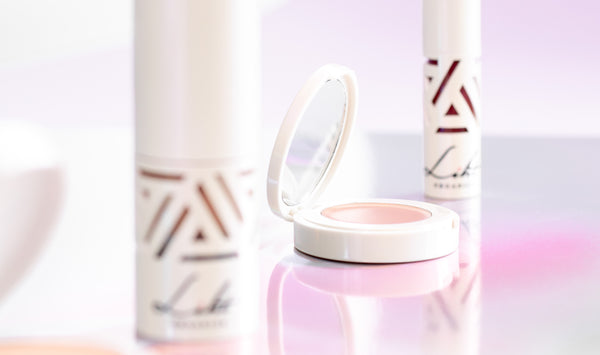




![[FEATURE] Liht Organics to debut at TFWA Asia Pacific show](http://lihtorganics.com/cdn/shop/articles/1_1.png?v=1759328400&width=170)
![[FEATURE] The Singapore-based organic makeup brand is a first-time exhibitor at this year’s TFWA Asia Pacific Exhibition in Singapore in May 2025](http://lihtorganics.com/cdn/shop/articles/2_1.png?v=1759328386&width=170)
![[FEATURE] Travel Retail Awards 2025 finalists - Best Make-up Product Color-Intense Liquid Lipstick – Liht Organics](http://lihtorganics.com/cdn/shop/articles/4_e2f54f0f-fcd1-46e7-9990-fc9d29e35131.png?v=1759328382&width=170)
![[FEATURE] Liht Organics targets expansion in travel retail](http://lihtorganics.com/cdn/shop/articles/3_1.png?v=1759328346&width=170)
































































